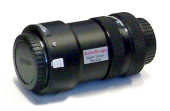 Almost a year after the last plenary of the Wassenaar Arrangement approved and adopted changes to the Wassenaar List of Dual-Use Goods and Technologies, the Bureau of Industry and Security (“BIS”) yesterday released a final rule implementing those changes on the Commerce Control List (“CCL”). A number of changes have been made, including the addition of some items that were not previously on that list. The list of changes is too long (and in some case too tedious) to fully detail in a blog post, but I did want to discuss briefly the addition of microwave power modules to the CCL which appears to be yet another item which could pose overlapping export control jurisdiction between BIS and the Department of State’s Directorate of Defense Trade Controls (“DDTC”)
Almost a year after the last plenary of the Wassenaar Arrangement approved and adopted changes to the Wassenaar List of Dual-Use Goods and Technologies, the Bureau of Industry and Security (“BIS”) yesterday released a final rule implementing those changes on the Commerce Control List (“CCL”). A number of changes have been made, including the addition of some items that were not previously on that list. The list of changes is too long (and in some case too tedious) to fully detail in a blog post, but I did want to discuss briefly the addition of microwave power modules to the CCL which appears to be yet another item which could pose overlapping export control jurisdiction between BIS and the Department of State’s Directorate of Defense Trade Controls (“DDTC”)
Microwave power modules are a recent technology that combines solid-state and vacuum electronics to provide highly efficient and powerful amplifiers with very low signal-to-noise ratio and extremely compact size. MPMs are also known for their rapid turn-on times. These properties have made them attractive for use in military applications such as radar, communications, and unmanned aerial vehicles (“UAVs”). In particular, MPMs have been used in the Predator and Global Hawk UAVs for both satellite and line-of-sight communications to and from the remote pilot. Commercial uses for MPMs include civilian satellite communications, wireless communications, and high power RF sources for laboratory use
The new ECCN for MPMs is 3A001.b.9. The controls on the new ECCN are NS2 and AT controls. The NS2 controls mean that licenses will be required for all countries other than those classified on those in Country Group A:1 on the Country List. License requests to any country other than one in Country Group D:1 will be subject to a general policy of approval unless there is evidence of a possibility of diversion to a country in Country Group D:1. License requests for a country in Country Group D:1 are subject to a case-by-case examination and will be approved if BIS determines that the item will not be used for military purposes. AT controls mean that license requests for exports or re-exports to Cuba, North Korea, Iran, Sudan and Syria are subject to a general policy of denial.
ECCN 3A001.b.9 sets forth certain performance requirements for an MPM to be covered. These include the unit’s turn-on time, the size of the unit as a function of its output power, and a measure relating to the unit’s instantaneous bandwidth.
A large number of MPMs are explicitly identified by their manufacturers as designed for military use, in which case they are covered under Category XI (Military Electronics) of the United States Munitions List (“USML”) or possibly Category XV (Spacecraft Systems and Associated Equipment). Interestingly, the related controls section of ECCN 3A001 only references, and excludes, MPMs covered under Category XV. This leads, of course, to an interesting question of overlapping or conflicting jurisdiction.
Consider, for example, an MPM designed for a military terrestrial communication system which therefore is covered by USML Category XI(a)(4)(iii). If that MPM meets or exceeds the performance characteristics of ECCN 3A001.b.9, then it would also be covered by that ECCN because only items covered by USML Category XV are excluded from the ECCN. Do you file a commodity jurisdiction request for that MPM? Or should you simply file for export licenses from both BIS and DDTC? Given the length of time it takes for a commodity jurisdiction request to be decided, the answer, of course, is to file for licenses from both agencies. To avoid this result, BIS should add to the “related controls” section of ECCN 3A001 an exclusion for MPMs covered by USML Category XI.

 Posted by
Posted by  Category:
Category: 

 A
A 


